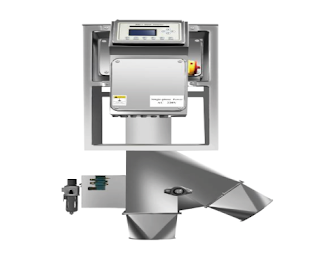The Essential Role Of Metal Detectors In A Modern Processed Food Factory
The packaged food industry has played a vital role in ensuring reliable access to food. Australia is a key player in the global processed food market accounting for a sizable chunk of the packaged dairy and meat industry. The scale of the food industry and the repercussions of a compromise in the quality of products can be fatal for any company looking to operate in this sector.
Ensuring food safety is not
only a preference but a necessity in the packaged food industry. Contaminants
like steel, aluminium, and other metals may make their way into the final
product. Detecting the contamination in the finished goods is practically
impossible for human eyes. To combat these quality control challenges, a
factory must be equipped with state-of-the-art food processing metal
detectors and scanners.
The processed meat market in
Australia surpassed USD 5 billion in 2023 and is expected to grow annually at
3.29%. The global processed meat market stands at over USD 600 billion and is
expected to grow further in the coming years. The use of metal detectors in the
processed meat industry is essential to eliminate the chance of finding
contaminating metals from blades, grinders, and packaging machinery.
The packaged food scene in Australia
When Australians are asked
about their favourite foods from their childhood, you can often hear about
vegemite spread and Tim tam chocolate biscuits. These fond memories prove the
integral role of packaged and processed food in Australia. With the changing
times, companies are now keeping the old traditions alive but adopting new
production technologies. Automatic filling and packaging machines, scanners,
and metal detectors are becoming a staple in every modern food factory floor.
Metal detectors: an absolute must for consistent quality
Customer satisfaction is the
utmost priority for any company that wants to succeed in the long run.
Complaints from customers regarding inconsistent quality or foreign particles
in the food are a nightmare for the brand image of a food company. Food
processing metal detectors are the first line of defense against such mishaps.
Machinery wear & tear, packaging materials, and even raw materials may be
the source of metallic impurities. These sources make it challenging for humans
to detect the impurity and ultimately lead to an inferior final product.
Complying with food safety regulations
Governments around the world
and in Australia have put in place stringent food safety standards for the
safety of consumers. Food manufacturers need to comply with the laws to get
safety clearances and food licenses. Apart from the regulations, any risk posed
to the customer due to the consumption of the product makes the manufacturer
liable for legal actions and remedial payments.
In conclusion
Metal detectors are an
invaluable part of the food processing industry. Thanks to the best metal
detector manufacturers in Australia, you can choose from world-class products
right within the country. It is important to be clear and precise about your
specific expectations and requirements before choosing the ideal machine. You
can contact the manufacturers directly to help you pick the best match for your
factory and get quotations online.
Similar Information
Useful Features to Consider While Buying Packaging Machines
Prevent Food Contamination with Metal Detectors
Understanding the Applications and Benefits of Load Cells
Compression Load Cell - An Accurate Measuring Equipment
How to Choose the Best Packaging Machine?
How does a food inspection X-Ray machine work?
Discover the Important Features of Packaging Machines
The Most Common Application of Load Cells



Comments
Post a Comment